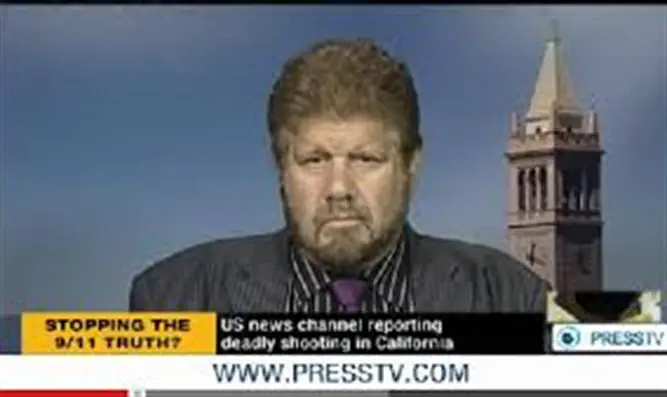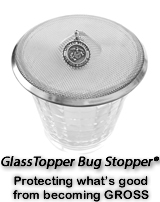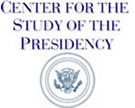
Lee Kaplan
The writer heads Stop the ISM. He is an investigative journalist and contributor to Front Page Magazine, senior intelligence analyst and communications director for the Northeast Intelligence Network, and also heads Defending America for Knowledge and Action (DAFKA). He appears frequently in the US media.Olive oil is not only a food product, but an extremely valuable commodity. ISM activist Paul Larudee has been involved for several years in selling what he advertises as “pure Palestinian extra-virgin olive oil” and that he bottles in America by hand, employing as many ISM activists he can get to volunteer to do so. He arranges “olive oil bottling parties” where BDS and ISM activists like himself to work for free bottling the olive oil that he then sells at street fairs and especially on the Internet to benefit “Palestine.”
Larudee may make his living doing this, but has also developed it into a lucrative business that raises money to ultimately fund BDS and possibly Hamas through the sale of olive oil he claims is the product of “poor Palestinian farmers.”
Olive oil sold with misleading labeling is such a good business that even the Mafia has been involved in its production and marketing. Trade experts have stated that more money can be made selling that kind of olive oil than can be made with drugs.
The Israeli government closely controls exports of agricultural products from the Palestinian Authority ('West Bank' and Gaza) due to threats of terrorism by poisoning. Palestinian terror leaders have tried on more than one occasion to poison the Israeli water supply so the Israelis take this threat seriously.
Thus, despite his advertised claims that the olive oil he sells is made by poor impoverished Palestinian farmers trying to eke out a living, the olive oil that Larudee and company have been hand bottling here in the US cannot be what he says it is. Israel until recently, in fact, did not allow the exportation of raw olives or olive paste from the Palestinian Authority at all for security reasons.
Larudee advertises that his bottles contain “cold pressed pure extra virgin olive oil” from “Palestine.”
My research into the olive oil trade has revealed that Larudee is more likely to be purchasing olives within the US market, bottling them, then selling the oil as “Palestinian” olive oil to an unwary public. Industry experts advised me that olive oil, especially the pure extra virgin kind, is very difficult to import before bottling because it spoils so quickly.
The National Olive Oil Association of America (NAOOA.org) is the trade group that seeks to assure quality and responsibility in the USA while the U.S. Department of Agriculture (USDA) is responsible for olive oil standards. The USDA defines olive oil grading in much the same way as the International Olive Council IOC, but while the standards are voluntary in Europe, in the USA it is fraud if there is a mistaken claim of USDA grade on the bottle label or case.
Larudee uses labels that say “USDA Organic” which has a different meaning than most consumers understand. In fact, the FDA does set the standards for the USA which extends to using processing facilities that Larudee does not seem to have. Nor does he provide proof of such certification on his labels. Of more importance, bottled olive oil is required in the U.S. to have nutritional information on the outside label and Larudee does not provide this.
The FDA requires that bottled olive oil be processed in an FDA approved facility that receives twice yearly inspections by FDA. The Public Health Security and Bioterrorism Preparedness and Response Act of 2002 (the Bioterrorism Act) directs the Food and Drug Administration (FDA), as the food regulatory agency of the Department of Health and Human Services, to take steps to protect the public from a threatened or actual terrorist attack on the U.S. food supply and other food-related emergencies.
Larudee has been in contact with designated terrorist group Hamas for years. There are even photos of him shaking hands with Hamas leader Ismail Haniyah and on another occasion his receiving an award from the terrorist group. Larudee was also caught and deported from Israel when he went there to meet with Hamas operatives, later going to Lebanon to work with Hezbollah, another designated terrorist group. More recently funds he sought to send to Hamas infested Gaza were frozen then returned to him by Mellon Bank due to suspicions of laundering funds for terrorism.
My investigations show that Larudee routinely bottles his olive oil in an old ramshackle house in Berkeley, California known as the Grassroots House, a shared meeting house with other radical and/or communist groups a few blocks from the UC Berkeley campus. In the past, he sometimes did so from his home in Emeryville, California. He prepares the olive oil in a shared communal kitchen in the Berkeley building with no FDA clearing for sanitation. I found that the pro-BDS volunteers who help him wear no hair nets and there is no making sure they even wash their hands, or follow sanitation requirements.
The Federal Trade Commission (FTC) also requires truth in labeling for olive oil products. Mislabeling of olive oil is a continuing problem according to the FTC. FTC regulations state “The FTC and the FDA have overlapping jurisdiction to regulate the advertising and labeling of foods. Section 403(a) of the FDCA prohibits the ‘misbranding’ of food which includes labeling that ‘is false or misleading in any particular.' This shared jurisdiction over labeling and advertising of food products operates pursuant to a longstanding Memorandum of Understanding between the agencies. Under this agreement, the FDA exercises primary responsibility for regulating food labeling, while the FTC assumes primary responsibility for ensuring that advertising of food products is truthful and not misleading.
Larudee’s olive oil bottle labels read that his Hurriya bottled olive oil is “pure extra virgin olive oil” when our investigations showed that it is not. To verify this mislabeling, this news agency hired Anresco Laboratories in San Francisco, an FDA approved food testing facility. Testing just one bottle of Larudee’s olive oil cost over $400 which professional olive oil bottlers and producers pay regularly to assure FDA quality for the end user. Each new lot of olive oil requires such sample testing. In fact, such testing can be like playing the whack-a-mole game where one bottle might pass while others are not the same quality. The difference between “extra virgin olive oil” and lesser quality oil is determined by the acidity level in the oil. Producers who intentionally mislabel their products’ acidity levels are guilty of fraud according to the FDA and FTC rules.
In the case of the Hurriya olive oil test, the acidity level showed that Larudee’s product is not the extra virgin quality claimed on the label. Genuine “extra virgin olive oil” usually commands a higher price from consumers, about $20 a bottle on average. Larudee charges $20 per bottle for his product. The test noted excessive amounts of filth patently visible in the bottle and that it was not extra virgin olive oil at all.
Besides the quality of the olive oil, Larudee and his Norcal-ISM who produce the product seem to be avoiding paying taxes due for the sales. Queries given to the city finance and business tax collection and health departments of both the cities of Berkeley and El Cerrito, Ca., require that sales be reported on a regular basis to compute business taxes owed. Both cities reported that not only does Larudee not have a permit to bottle olive oil from the city or county health departments (nor from the state of California), he has not been paying these government agencies and the public the taxes due on sales.
Other businesses are required to report their sales to pay city taxes based on those numbers that he has avoided for at least the last ten years. While his Norcal ISM has nonprofit tax status as an “educational nonprofit,” he nevertheless is required to keep records and report his sales when he is engaged in selling a product for profit in case of a necessary recall if a threat to the public health emerges. Reports said that Larudee does not do this.
So here we have a fan of the Hamas terrorist group bottling his product in a non-sterile FDA approved kitchen in Berkeley or Emeryville where he resides, using what the experts showed is fraudulent labeling and evading taxes to benefit the BDS Movement and himself. Larudee once wrote a letter about his pleasure at sleeping in the bed of a suicide bomber and stated he recognizes the Palestinians’ right to violence to achieve their goals. Would you want someone who works closely with Hamas preparing your food?
California has just begun clamping down on misrepresented olive oil products of the sort Larudee sells to fund the BDS Movement. This might explain why he is now looking to import pre-bottled olive oil from a Palestine Fair Trade Association set up by the PLO to bypass scrutiny in the U.S. market. Importing pre-bottled olive oil can mean the product will not have the freshness needed to assure proper quality as required in the U.S. market that the EU is more willing to overlook. The EU is also more willing to overlook misrepresentation of the olive oil product. The Palestine Fair Trade Association website says that olive oil will be certified as labeled properly through the “Fair Trade Labeling Association of Germany” (FLO), yet only a few lines later reads, “FLO has not yet developed international product specific guidelines for olive oil.”
Current U.S. FDA standards for bottling and labeling olive oil must be adhered to in the U.S. market for health and consumer products and it is questionable if Larudee’s using a shill trade association administered by the PLO government in Jenin is going to change past practices of ignoring uncleanliness, mislabeling and tax evasion. Larudee has long violated U.S. Customs regulations that require bottled olive oil products (as sold by Larudee’s Nor-Cal ISM to raise funds for BDS) to say “product of the West Bank” (a recent political development since U.S. Customs used to require they read “Made in Israel”). For over 10 years, Larudee’s bottles have been labeled “Produced by Palestinian farmers in Israeli occupied Palestine and packed by volunteers of the International Solidarity Movement in Berkeley, California.”.
By bringing in pre-bottled goods as he suggests he will be doing, Larudee risks bringing in spoiled olive oil because the transport time for the oil may result in spoilage unless done professionally. Despite being sent via “Palestine Fair Trade Association,” the labels also state the product is packed in the United States requiring the same permits, health and sanitation inspections and true labeling as before, not to mention tax reporting on sales.
Readers are encouraged to send copies of this article to the enforcement agencies below to hopefully see some action with the new administration in Washington. In particular, U.S. Customs has a new e-allegation email system readers can write to electronically. A US Customs source has recommended this article be copied simultaneously to the reader’s congressional representatives.
1.U.S. Customs
https://www.cbp.gov/trade/trade-community/e-allegations/e-allegations-faqs
Office of International Trade,
U.S. Customs and Border Protection,
1300 Pennsylvania Ave., NW, ATTN: 1400 L-11,
Washington, DC 20229.
Ph. 800 232-5378
2.California Dept. of Health re: Olive Oil complaint line
https://www.cdph.ca.gov/programs/pages/fdboliveoil.aspx
(800) 495-3232 ext. 5
3.FDA Compliance and Enforcement: http://www.fda.gov/food/complianceEnforcement/default.htm
U.S. Food and Drug Administration
10903 New Hampshire Avenue
Silver Spring, MD 20993
1-888-INFO-FDA (1-888-463-6332)
4.Federal Trade Commission (labeling)
https://www.ftc.gov/enforcement
Bureau of Consumer Protection
Federal Trade Commission
600 Pennsylvania Ave., NW
Washington, DC 20580
Phone (202) 326-2222
5. City of Berkeley Finance Department Business Licenses and Taxes:
1947 Center Street, Berkeley, CA 94704
TEL: (510) 981-7200, TDD: (510) 981-7250, FAX: (510) 981-7210
Office Hours: Mon-Thurs, 8:30am-4:00pm, Email: finance@cityofberkeley.info
Revenue collection: Mila Serna, Supervisor
Phone: (510) 981-7272 ;
Business Licenses
Phone: (510) 981-7200
Fax: (510) 981-7210
Email: BusLic@cityofberkeley.info
6. City of El Cerrito Finance Department Business Licenses and Taxes:
Report a concern:
http://www.el-cerrito.org/index.aspx?nid=127
Investigations - Financial Crimes
Physical Address:
Detective J.T. Wahrlich
El Cerrito, CA 94530
Phone:
(510) 215-4420




